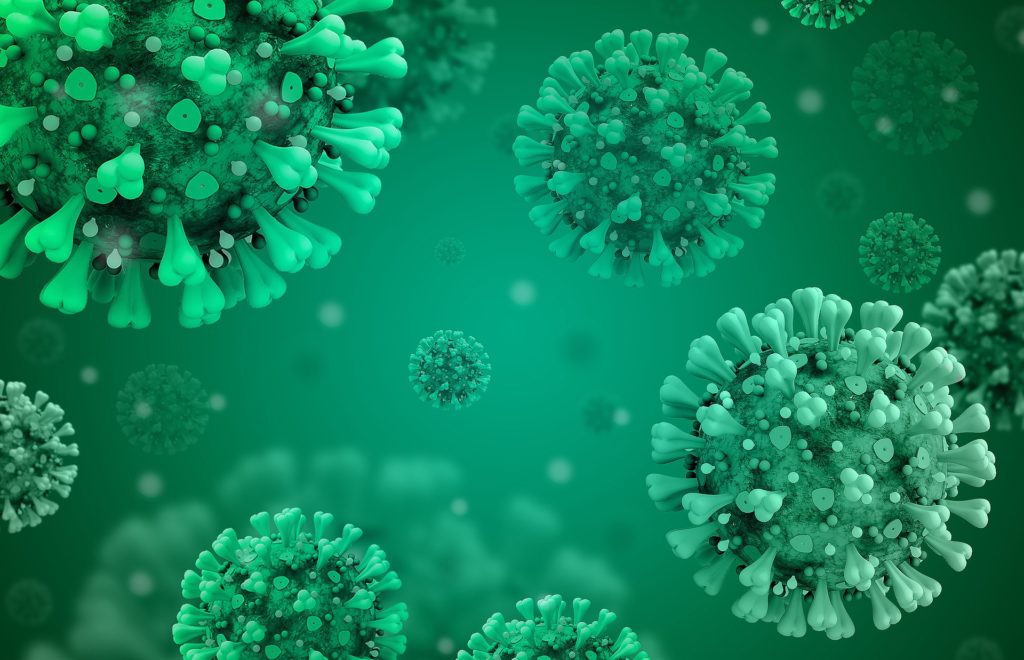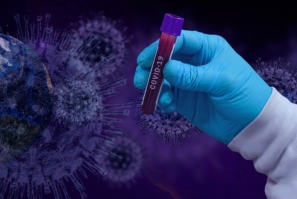Covid Alteration of the Gut Microbiome: A Factor in Long Covid?
October 6, 2022
In a previous Perspective we considered the relationship between Covid pathology and the gut microbiome. Since then, new studies have shed additional light on the topic. We will consider these new findings, including whether dysregulation of the microbiome might be related to long Covid.
INTRODUCTION

As we pointed out previously, there is a substantial body of evidence showing alterations in the gut microbiome associated with Covid, either due directly to SARS-CoV2 infection of the gut or to general immune dysregulation. A recent study has extended these findings using shotgun sequencing data from gut microbiota to assemble meta-genome assembled bacterial genomes and provide a more detailed comparison between the normal and the Covid microbiomes. Assembling more complete genomes allows identification of previously unknown bacterial species and of intra-species genetic diversity. They found more than 5,000 distinct assembled bacterial genomes, including those of bacteria yet to be isolated. They showed that the bacterial composition could accurately discriminate between Covid and non-Covid samples and could even predict the severity of Covid. Consistent with prior reports, Covid samples had lower bacterial diversity, including intra-strain diversity within bacterial species. Some bacterial species that they characterized as “protective” (including anti-inflammatory and butyric acid-producing bacterial species) were underrepresented in Covid patients, while other putative protective species were reduced in their strain diversity. The authors also identified putative bacterial species predisposing to Covid, which they called “permissive”, and suggested they were predictive of poorer outcomes of infection. Functional consequences of this diversity were an upregulation of pentose pathway activity, which the authors suggest would result in an increase in plasma aromatic amino acids. Taken as a whole, their work further supports a role for the gut microbiome in determining Covid pathogenesis.
If there is ample evidence linking gut dysbiosis to Covid, are there reasons for thinking that it might be a determinant for long Covid? Here the evidence is a bit more mixed. One study found no correlation of microbiome composition with Covid duration except for those attributable to high blood lipid levels.

In contrast, another prospective study with 106 participants (of whom 76% had typical long Covid symptoms 6 months post-infection) reported that gut dysbiosis was both correlated with as well as predictive of long Covid. Covid patients who had recovered had microbiome populations similar to people who had never had Covid. Long Covid patients, on the other hand, had reduced microbiome diversity. One of the greatest correlations was a reduction in butyrate producing bacteria such as F. prauznitzii. They found that different bacterial species were associated with specific long Covid symptoms. For example, persistent respiratory symptoms were highly associated with opportunistic bacteria such as Streptoccus species. On the other hand, hospital-acquired pathogens such as C. innocuum were correlated with mental symptoms and fatigue. Strikingly, certain bacterial species present at admission for initial Covid were predictive of whether long Covid developed or not. The presence of Bifidobacterium, Blautia and Bacteroides was negatively correlated with long Covid, while Actinomyces sp S6 Spd3, Actinomyces johnsonii and Atopobium parvulum were highly correlated with long Covid.
Another prospective study using sequencing of bacterial 16S ribosomal RNA reported generally similar results. In addition, they found higher levels of inflammatory markers upon admission in patients who later had reduced gut microbial diversity, suggesting that the effect of the immune response to SARS-CoV2 infection may be an important determinant for gut microbial diversity and, by implication, long Covid. Indeed, a recent study looked at plasma proteomics and found that a signature of elevated expression of 20 proteins at time of infection were predictive of symptoms persisting 12 months. These included markers of tissue damage, inflammation and impaired immunity. Taken together with gut microbiome data, this points to potential mechanisms for long Covid. It is not clear whether dysbiosis could be causing expression of these plasma markers or whether whatever is causing the elevated plasma markers is also causing the dysbiosis. The two possibilities are of course not mutually exclusive.
CONCLUSION
Correlation and predictive power do not necessarily equate with causation. What is needed to show causation would be to show that correcting the dysbiosis would alleviate the symptoms of long Covid. One possibility would be intestinal microbiota transplants. A recent report described two patients with both Covid and C. difficile infections who experienced a rapid resolution of Covid following an intestinal microbiota transplant for the C. diff. While this may not have bearing on long Covid, it is certainly intriguing. Clinical trials of this nature may help unravel the nature of long Covid. Beyond transplantation these studies may suggest other plausible interventions such as those based on pre- and probiotics. Yet, overall, vaccination may be the only thing to afford some protection against long Covid.
REFERENCES
- 1. Ren, Z., et al., Alterations in the human oral and gut microbiomes and lipidomics in COVID-19. Gut, 2021. 70(7): p. 1253-1265.
- 2. Zuo, T., et al., Depicting SARS-CoV-2 faecal viral activity in association with gut microbiota composition in patients with COVID-19. Gut, 2021. 70(2): p. 276-284.
- 3. Zuo, T., et al., Alterations in Gut Microbiota of Patients With COVID-19 During Time of Hospitalization. Gastroenterology, 2020. 159(3): p. 944-955 e8.
- 4. Yeoh, Y.K., et al., Gut microbiota composition reflects disease severity and dysfunctional immune responses in patients with COVID-19. Gut, 2021. 70(4): p. 698-706.
- 5. Ke, S., S.T. Weiss, and Y.Y. Liu, Dissecting the role of the human microbiome in COVID-19 via metagenome-assembled genomes. Nat Commun, 2022. 13(1): p. 5235.
- 6. Österdahl, M.F., et al., Metabolomic and gut microbiome profiles across the spectrum of community-based COVID and non-COVID disease: A COVID-19 Biobank study. medRxiv, 2022: p. 2022.08.07.22278510.
- 7. Liu, Q., et al., Gut microbiota dynamics in a prospective cohort of patients with post-acute COVID-19 syndrome. Gut, 2022.
- 8. Chen, Y., et al., Six-month follow-up of gut microbiota richness in patients with COVID-19. Gut, 2022. 71(1): p. 222-225.
- 9. Bilinski, J., et al., Rapid resolution of COVID-19 after faecal microbiota transplantation. Gut, 2022. 71(1): p. 230-232.
